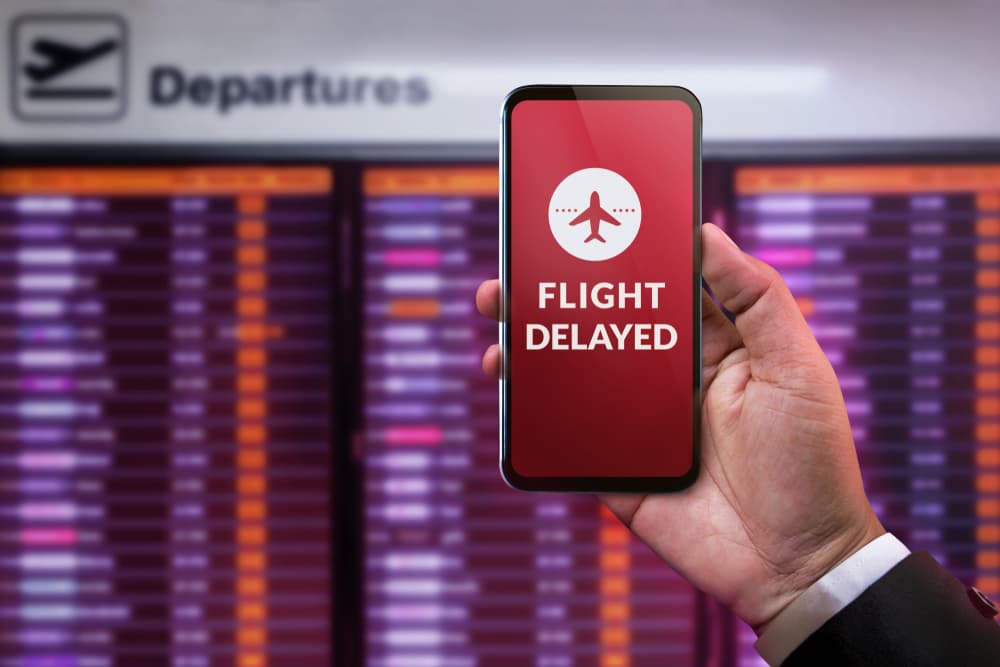Global Microsoft outage on July 19, 2024 affected many industries as Microsoft services went down temporarily. The worst affected were the airport and the flights, hotels, tourism, and the issuance of visas. This blog post describes these critical industries and their experience with the outage, the short-term consequences of the event, and the long-term effects for companies and tourists.
The Outage: An Overview
The technical disruption that affected the Microsoft services globally kicked off at the start of 19 July 2024 at 8:00 AM UTC. Outage impacted Office 365, Azure, Teams, and Outlook among other services. It was a major incident because numerous people with millions of active users depend on these services to perform their work every day.
Impact on Airports and Flight Operations
Check-In and Boarding Processes
Most of the airports in the world have adopted the use of ICT in the check-in and boarding procedures. These systems were impacted by the outage resulting in long queues and congestion. The airline ground personnel were not able to access the passenger information and hence they had to rely on manual handling of the passenger data which meant that there was a slowdown in the operations.
- Check-In Delays: Long queues were noticed at the check-in desks making it hard for passengers to get services within a short time. Due to the unavailability of cloud-based systems, many check-ins had to be done manually and that was quite inefficient.
- Boarding Issues: This also impacted the boarding system because the employees could not use electronic boarding passes and passenger lists leading to more time wastage.

Flight Scheduling and Coordination
Flight scheduling as well as coordination was also affected. Flight schedules, crew members, and aircrafts are all managed by the airlines through scheduling software hosted on the cloud, especially Azure.
- Flight Delays and Cancellations: Many flights were either delayed or inconvenienced because the agents could not get into the systems used to make schedules. This led to a lot of problems for the passengers and management issues to the airlines.
- Crew Management: Airlines had some challenges in terms of crew management, and this resulted in more challenges as regards staff and time..
Communication Breakdowns
Communication plays a very important role in the management of an airport. The outage impacted on the internal and external communication, thus creating a ripple effect on the coordination between department and the passengers.
- Passenger Communication: Airlines had a problem of informing the passengers about the delays and cancellations as there was no use of emails and messages..
- Operational Coordination: The internal communication between the airline personnel, the ground team, and the airport managers was affected which caused disruptions in the operations..
Impact on the Hotel Industry
Reservation and Booking Systems
Hotels use cloud based applications for managing bookings, room availability, and check-ins. These systems were greatly affected by the outage and as a result there were many operational issues.
- Booking Disruptions: Consumers struggled to start a new booking or change an existing one. The coronavirus outbreak forced many hotels to cancel the use of automated systems and rely on manual booking which was time-consuming and chaotic.
- Check-In Delays: Similar to air travel, the check-in procedure at the hotels was also affected to some extent because of the lack of access to guests’ information that was stored in the cloud.

Customer Service and Communication
The numerous contacts with the customers in the hotel industry are managed and coordinated through digital tools. These tools were affected by the outage which consequently reduced the quality of services being delivered.
- Communication with Guests: Some of the challenges that affected hotels include; they found it extremely difficult to convey information to the guests concerning their reservations, the special needs of the guests and other services that the guests may require.
- Service Management: Most of the hotels had issues in managing the housekeeping, the room service, and other services that the guests require since there were no digital systems to help them in the management.
Financial Transactions
The outage also impacted financial transactions within the hotel industry. Many hotels use cloud-based financial software for billing and payment processing.
- Payment Processing: Many guests faced the issue of payment by credit card, which caused problems and, consequently, delays in the process.
- Billing Issues: The reception departments in the hotels struggled with issuing bills and invoices and the check-out process was slow.
Impact on Tourism
Travel Planning and Coordination
Travelers use different digital services to organize their trip, starting from the flight and hotel booking to the choice of activities. These tools were affected by the outage and this impacted many people’s travel plans.
- Booking Disruptions: Tourists were struggling to make their bookings on flights, accommodations and even activities to do while on their vacation. This therefore resulted in some form of discontent and may as well lead to alteration of travel plans..
- Coordination Challenges: Managing itineraries and confirming bookings got difficult because everything was not available in the digital format.
Tourist Attractions and Activities
Some of the tourist attractions and activities are dependent on certain digital technologies in ticketing, time-tabling, and other forms of communication. The following systems were affected by the outage and this led to the following disturbances.
- Ticketing Issues: The visitors struggled with buying tickets for various attractions and activities online and standing in lines at the ticketing offices.
- Scheduling Disruptions: The tours and activities that were scheduled were jeopardized by the communication problems and the time conflicts.

Communication and Connectivity
Maintaining communication when on a trip is very important to any tourist. It disrupted the communication means which made the tourists stranded and they couldn’t be in touch with their families, friends or even the travel agents.
- Communication with Home: A problem area was the ability of tourists to convey their status to their families and friends back home as many of them could not access their emails or send messages.
- Travel Provider Communication: This made it hard in the coordination with travel providers such as tour operators and guides hence altering the travel experience.
Impact on Visa Services
Application Processing
Most of the visa applications are made, processed and monitored online. Some of these platforms include the Microsoft services and the outage affected these platforms and delayed visa processing.
- Submission Delays: Applicants had difficulties in submitting their visa application online and this led to the delay in the submission hence missed their travel time.
- Processing Interruptions: Due to the disruptions, the Visa processing centers could not access the applicant information and the documents of the applicants which caused delay.
Communication with Applicants
The service providers of the visa services engage in the mobile and electronic means to update the applicants regarding their application status and other requirements. These were the communication channels that were impacted by the outage.
- Status Updates: The applicants’ biggest problem was the absence of information on the status of the visa application, which made them nervous.
- Request for Additional Documents: The service providers in visa faced problem in asking for more documents from the applicants which again prolonged the process.
Coordination with Embassies and Consulates
Service providers for visas work hand in hand with the embassies and consulates to sort and approve applications. However, the outage interrupted the coordination of the two entities and hence the efficiency of the visa services.
- Approval Delays:This affected embassies and consulates since they could not easily acquire the visa applications and other necessary papers, hence slow processing.
- Scheduling Issues: The scheduling of visa interviews and appointments became difficult, which affected the applicants in one way or the other.

Broader Implications and Lessons Learned
Importance of Redundancy and Backup Systems
As a result, the importance of having the redundant systems and the backup solutions was demonstrated. This is to mean that businesses must look for other systems that they can use in case of such occurrences.
Need for Effective Communication Channels
Communication is very vital in the course of disruption. Businesses must create more than one form of communication to make it possible to communicate with clients and workers even during blackouts.
Digital Dependency and Resilience
The outage highlighted the fact that we are more and more reliant on digital systems and how important it is to be prepared. It is recommended that business organizations should review and revise their disaster recovery and business continuity plans at frequent intervals to tackle digital threats.
The Microsoft global outage on July , 2024 affected the airport, flight, hotel, tourism and visas services industries seriously. It produced considerable operational challenges and underscored the importance of digital technologies in these industries. In the future, more emphasis should be put on improving the organization’s ability to effectively handle such outages and prevent them from negatively affecting the business and its clients and partners.


